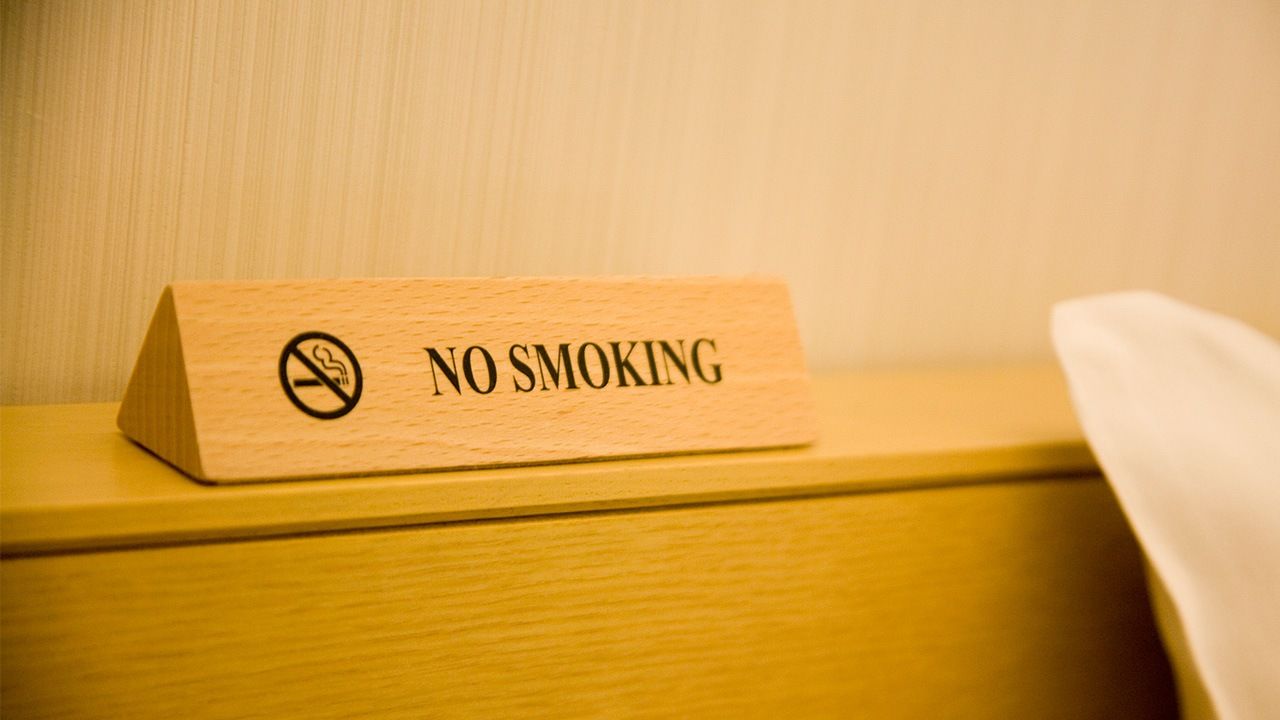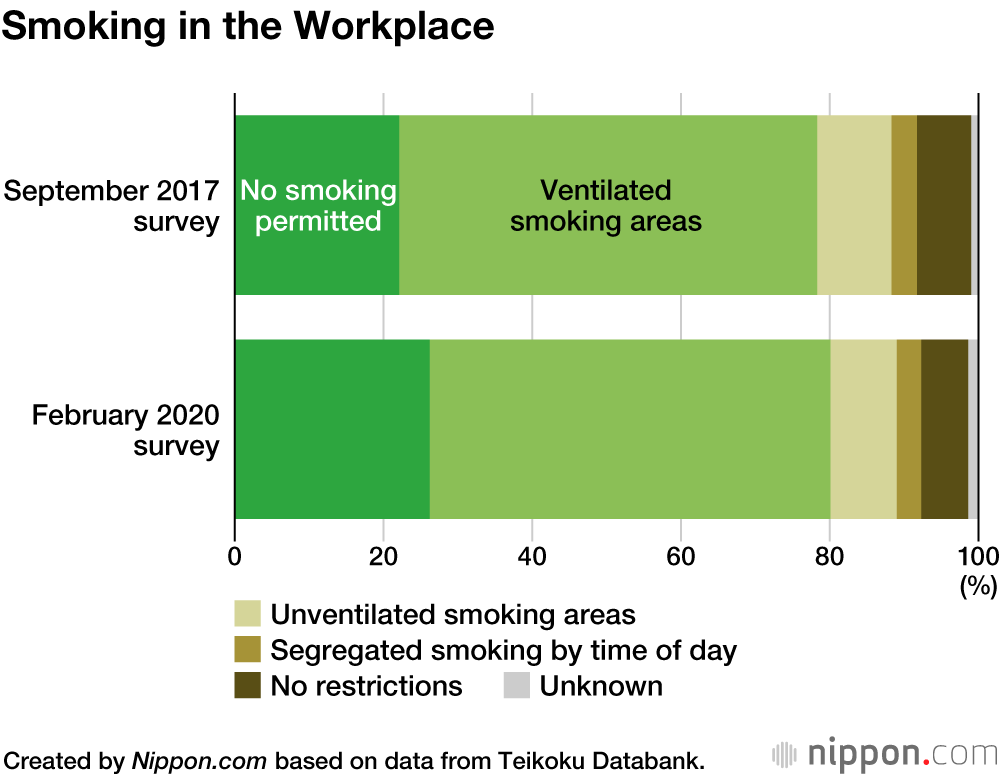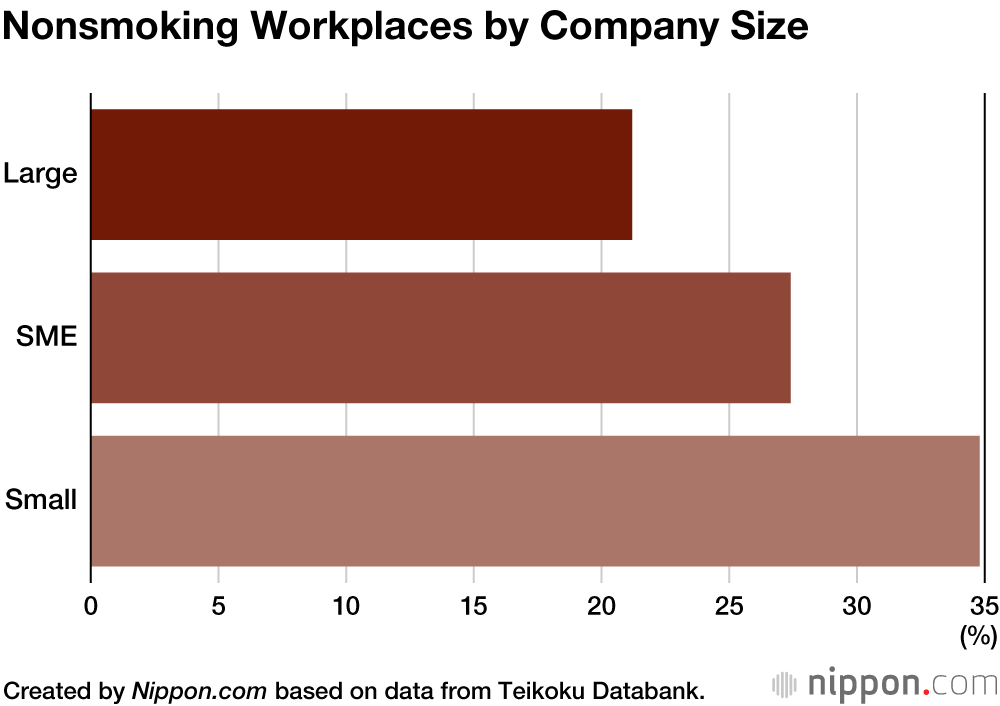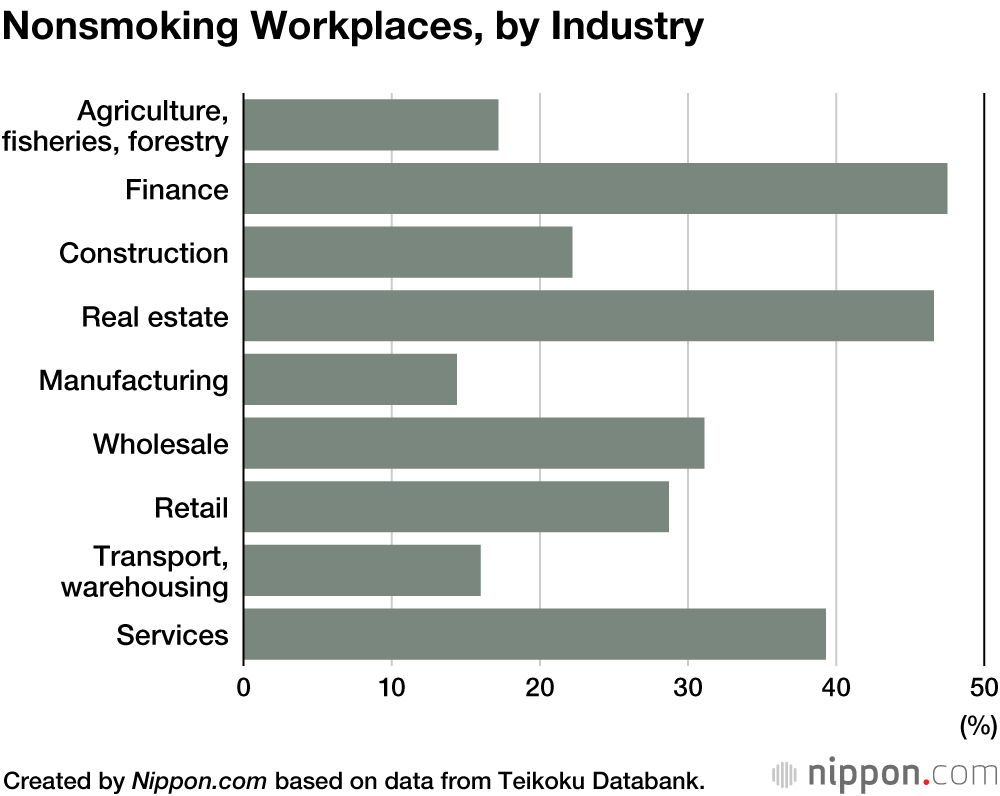
Smoking and Japanese Workplaces
Society Health- English
- 日本語
- 简体字
- 繁體字
- Français
- Español
- العربية
- Русский
A survey of 23,668 Japanese firms found that 53.9% had taken steps to segregate smokers such as providing appropriately ventilated smoking areas or setting up outdoor smoking areas at their head offices or main offices. Meanwhile, 26.2% did not allow smoking on the premises, a 4.1-point increase over a September 2017 survey conducted by the same company, Teikoku Databank. Another 8.9% of firms surveyed said they had indoor smoking areas that lacked proper ventilation, and 3.3% allowed smoking only in designated spaces at specified times of day.
By company size, the survey found that more smaller companies tended to ban smoking outright, perhaps because their offices were not large enough to install ventilation equipment or set aside segregated smoking areas.
By industry, smoking bans were more prevalent in finance (47.5%), followed by real estate (46.6%), services (39.3%), wholesaling (31.0%), and retailing (28.7%). Overall, firms in industries with more customer-facing interaction were more likely to have smoking bans. By region, bans were more common in heavily urban areas like southern Kantō (33.7%) and Kansai (27.4%).
Note that the government defines large, small and medium-sized, and small enterprises differently by their capital and number of employees depending on their industry. For example, small enterprises have up to 5 employees (commerce and services) or up to 20 employees (manufacturing and other). SMEs have up to 50 employees (retail), up to 100 employees (wholesale and service), and up to 300 employees (manufacturing and other).
(Translated from Japanese. Banner Photo: ©Pixta)


